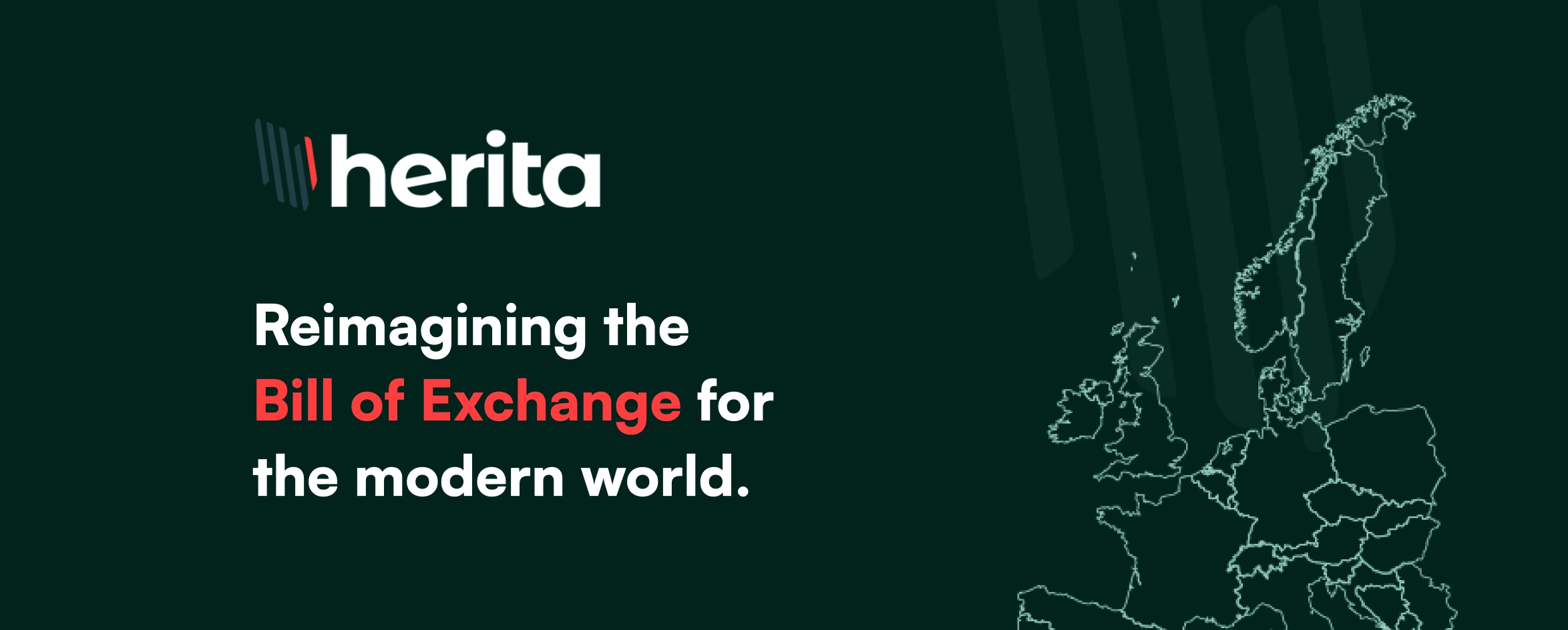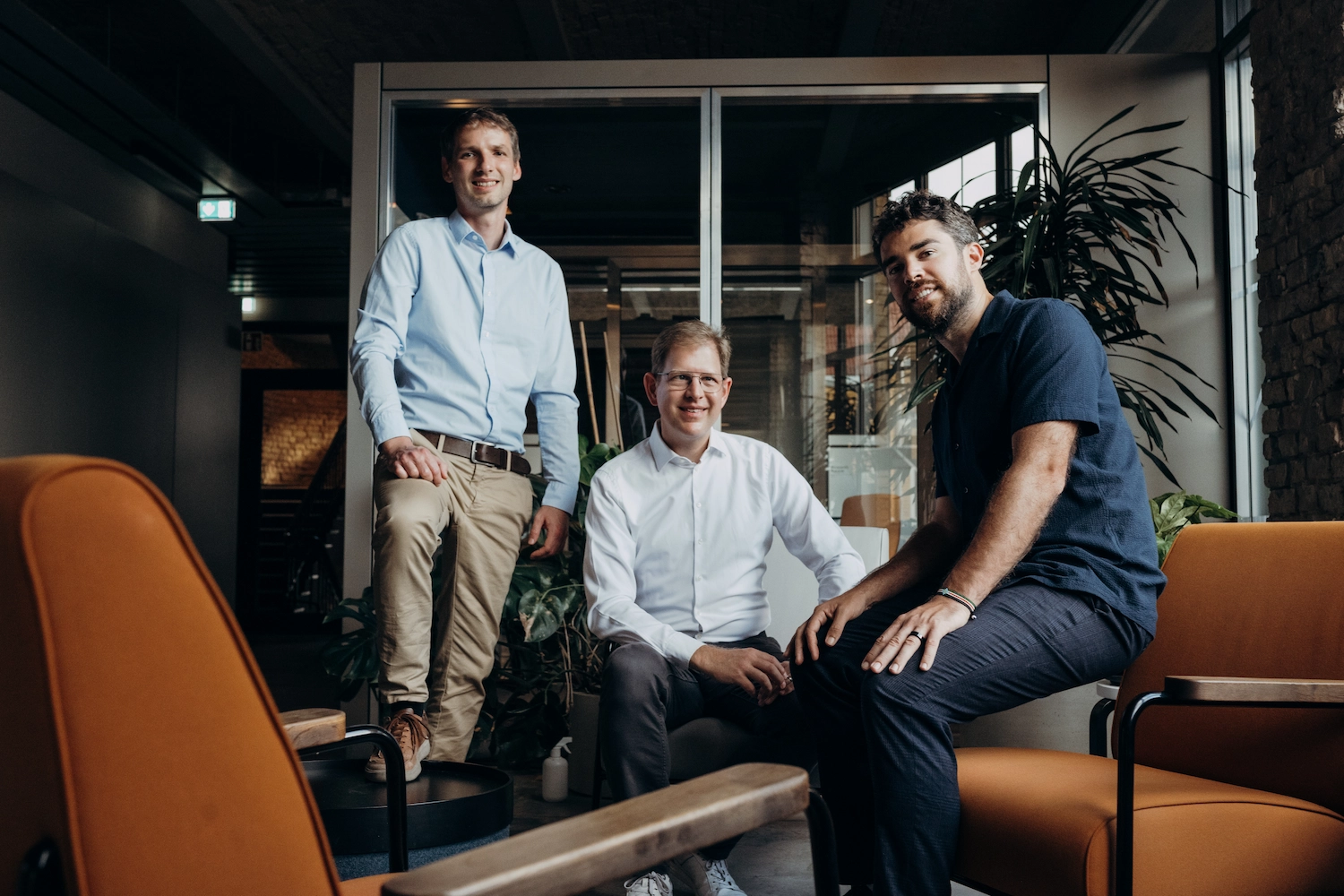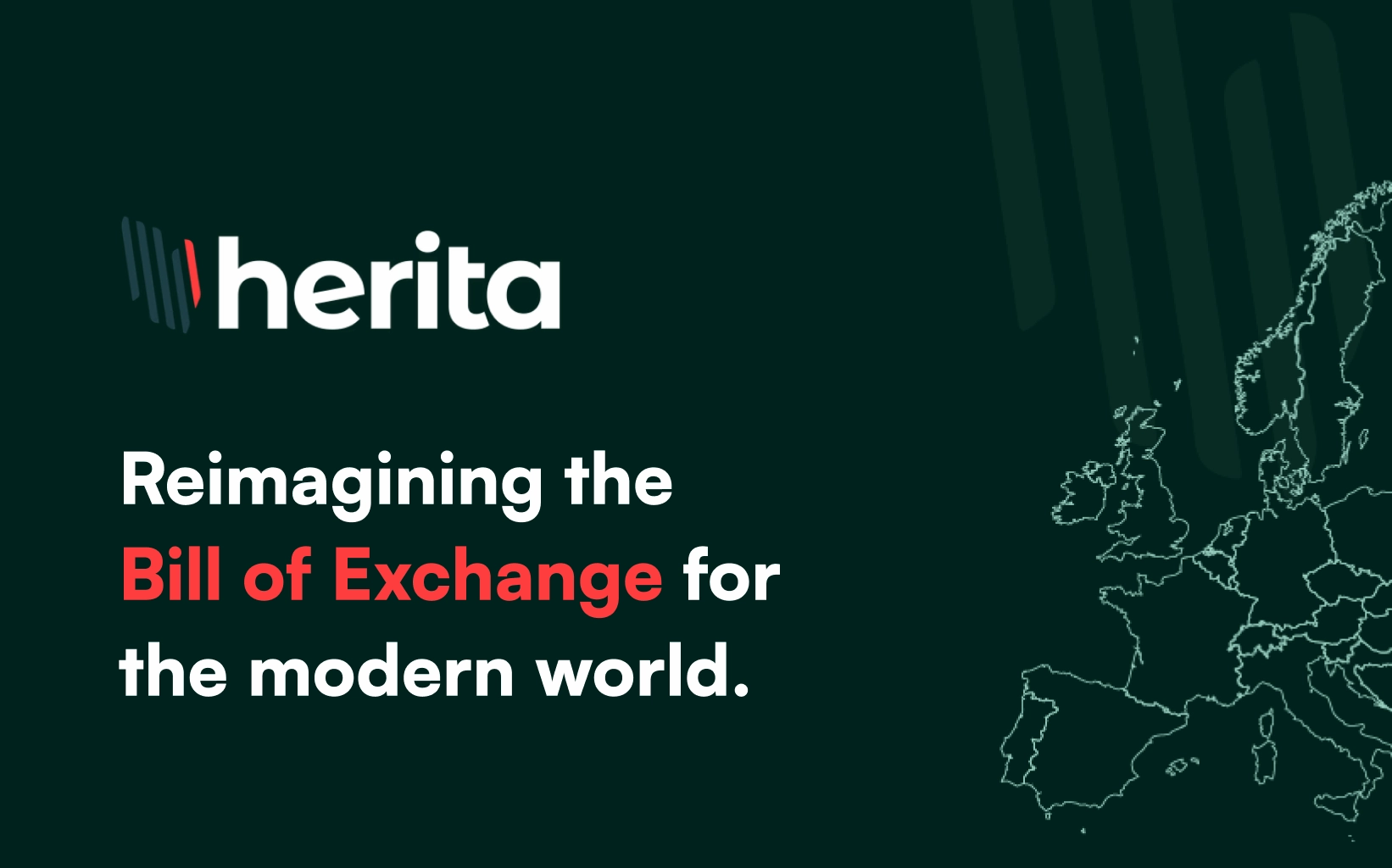
Why we invested in herita
Nov 7, 2025
|
10 mins
Sometimes innovation means inventing something new. Other times, it means dusting off a centuries-old idea and rebuilding it for the digital age.
Herita is doing the latter — reviving one of the oldest financial instruments in history: the Bill of Exchange.
For centuries, merchants traded across oceans on nothing more than a signed promise to pay —a simple, standardized document that allowed commerce to move faster than banks could. But as paperwork and regulations piled up, the Bill of Exchange quietly disappeared.
Now, thanks to new laws like the UK’s Electronic Trade Documents Act and the global UNCITRAL MLETR framework, these instruments are coming back — this time in digital form.
Herita is building the infrastructure to make that revival real. Their “digital Bills of Exchange” (or DBEX) let manufacturers finance their distributors directly — legally, transparently, and without becoming banks themselves. It’s captive finance without the bank.
The Opportunity
If you’re a mid-sized manufacturer selling through distributors, financing your ecosystem has always been a headache. You can:
- Stretch invoices (and tie up your own cash).
- Start a captive bank (and spend years getting regulated).
- Or outsource it to someone else (and lose control).
None of these are great options.
Herita offers a fourth: issue a digital Bill of Exchange that your distributor accepts electronically. You can hold it, trade it, or sell it to private credit investors. It’s legally enforceable, instantly auditable, and doesn’t require a banking license.
For manufacturers, this means financing sales directly and capturing yield on their balance sheets. For investors, it opens a standardized, short-term asset class that previously didn’t exist.
The founders behind it
This idea didn’t appear out of thin air — it’s the product of decades of frustration with how trade finance actually works.
Christoph Iwaniez, Herita’s CEO, spent over 15 years in treasury and trade finance at LBBW and Deutsche Börse. He’s the kind of person who can explain the regulatory subtleties of negotiable instruments and still make you want to listen.
He spent more than a year validating the legal and market feasibility before writing a line of code. A good sign when you’re rebuilding 16th-century finance for the 21st century.
Christoph is joined by Benjamin Jones, who co-founded Nuri (formerly Bitwala), one of Europe’s first regulated crypto banks, and Felix Kollmar, who built and sold CloudRail, an industrial IoT platform used by manufacturers such as Bosch and Deutsche Bahn.
Together, they blend finance, fintech, and industrial automation — exactly the combination needed to modernize trade credit for manufacturers.
Why we backed them
At BFC, we love founders who operate at the intersection of the old and the new. Individuals who can discuss how something used to work and how it will work again. Christoph and his team are exactly that type.
They’re reactivating an institution of commerce that outlived empires, and giving it a blockchain-grade reboot (minus the hype, plus the lawyers).
We also like that Herita’s model makes sense at every level:
- For OEMs: a way to finance their distributors and earn yield on idle cash.
- For investors: a standardized, enforceable instrument with real-world collateral.
- For regulators: a compliant bridge between commerce and capital.
It’s a rare win-win-win.
We’re thrilled to back Christoph, Benjamin, and Felix as they bring a centuries-old mechanism into the modern fintech stack.
Because sometimes the future of finance isn’t about inventing something new.
It’s about finally fixing something that used to work — and making it work again.
For more information visit www.herita.tech
















